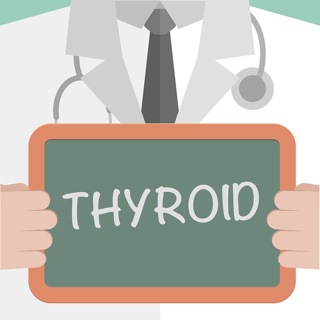
For some, managing autoimmune Hashimoto's is as easy as going gluten-free. For others, it requires trial and error to find the triggers. And for those with severe or multiple autoimmune disorders, symptom management requires a conscious, lifelong approach to diet and lifestyle.
Hashimoto's is an autoimmune condition in which the immune system attacks and destroys the thyroid gland. Managing Hashimoto's hypothyroidism requires a multi-faceted approach that addresses immune function.
If you are not getting the results you want, see if any of the factors is getting in the way:
1. Not caring about your thyroid care. If you leave your thyroid care to the standard health care model, you may never see optimal results. The conventional model is based on lowering TSH into lab ranges with T4 medication. The Hashimoto's patient needs to invest in self-education for the best results. The guidance of an experienced practitioner may still be necessary, but in functional medicine, patient participation is integral to success.
2. Skipping meals. When blood sugar drops too low it triggers autoimmune flare-ups. Symptoms of low blood sugar include shakiness, blurred vision, irritability, being spaced out, fatigue, and loss of function. If you feel more energetic after eating it means your blood sugar was too low. Skipping meals promotes Hashimoto's flare-ups.
3. Ignoring blood sugar stability. The blood sugar and insulin surges from eating sweets and starchy foods trigger autoimmune flare-ups. Symptoms include fatigue, energy crashes, sugar cravings after eating, insomnia, and waking up at 3 or 4 a.m. If you are not keeping your blood sugar stable it will be difficult to manage Hashimoto's.
4. Ignoring brain health. Hashimoto's is hard on the brain, causing symptoms that overlap with Hashimoto's, such as brain fog, depression, and memory loss, and accelerating brain degeneration. It's vital to support your brain health as part of your Hashimoto's hypothyroidism plan.
5. Not truly gluten-free. Being gluten-free is like being pregnant. You either are or you aren't. Gluten is a significant trigger for most people with Hashimoto's. If you are cheating on your gluten-free diet, not being careful, or eating foods that cross-react with gluten you may be sabotaging your recovery process.
6. Eating foods that cross react with gluten. If you eat foods that cross react with gluten, then you may not have success managing your Hashimoto's. Gluten cross-reactive foods are structurally similar to gluten and can trigger reactions. The most common cross-reactive foods are milk (casein), followed by rice, corn, sesame, and gluten-free oats.
7. Too much stress. Stress is a potent inflammatory trigger, as many have learned through experience. Bad relationships, an unhealthy work environment, not enough down time, and even a persistent negative attitude are chronic stressors. It's important to mitigate stressors as much as possible and schedule regular time off.
8. Not looking past thyroid meds. Many patients are looking for the perfect thyroid medication Although finding the right med can make a huge difference, meds alone don't always go the distance. Hashimoto's is a complex autoimmune disorder that requires nutritional therapy and lifestyle approaches. If you're still eating foods that flare your immune system, meds can't do their job.
9. You are taking supplements that stimulate your immune system. Some supplements can make your Hashimoto's hypothyroidism worse or better, depending on your immune system. Echinacea, green tea, acai, Astragalus, licorice, and others can either help or aggravate autoimmunity, depending on whether you have TH-1 or TH-2 dominance. It's very important to be aware of this. Please refer to Why Do I Still Have Thyroid Symptoms? for more information.
10. You react to fillers in your thyroid meds. Many thyroid meds and supplements contain fillers you may react to. Some capsules can contain gluten, and some whole-food supplements may contain gluten or be contaminated with gluten. You need to make sure your thyroid hormones are gluten-free and free of corn starch if you react to corn. Investigate the filler ingredients in your medication or supplements in case they are causing a reaction.



Latest from the Blog
Navigating Tick-Borne Infections: Ozone Therapy as a Holistic Approach to Lyme Disease and Co-Infections
April 8, 2024Tick-borne infections, particularly Lyme disease and its co-infections, pose a significant health challenge for individuals worldwide. Characterized by complex symptoms and often elusive diagnoses, these infections can wreak havoc on the body’s immune system and overall well-being. Amidst the conventional treatments available, there’s a growing interest in exploring complementary therapies such as ozone therapy within […] Read more
Latest from the Blog
Unlocking Hope: Ozone Therapy as a Complementary Approach to Cancer
Cancer remains one of the most challenging health issues of our time, affecting millions of lives worldwide. While conventional treatments such as chemotherapy and radiation therapy have made significant strides in cancer management, many patients seek complementary approaches to enhance their treatment outcomes and alleviate side effects. Ozone therapy, a promising modality in functional and […] Read more